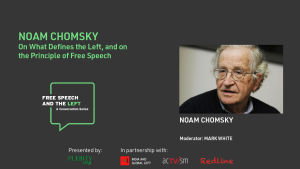
Hoover Tower, Stanford University–Creative Commons license
In the abstract, people mostly agree that book banning is a bad thing. The Nazis did us the favor of being very clear about it and literally burning books, but there are rarely cases that are so unambiguously wrong.
In our current culture, it is more common that reading certain books may be punished rather than the books themselves being outright banned. This more subtle form of social control encourages one of the most insidious threats to freedom–the tendency in all of us to self-censor what we read, think and say.
Since the Middle Ages, we have come to at least theoretically expect our elite institutions of higher learning, i.e. universities, to be the last places that would discourage reading or what hopefully goes along with it, learning.
Two campus incidents, one from the not so distant past of 2008 and one from just this month show that this is sadly not the case.
2008: Indiana University – Purdue University, Indianapolis IUPUI
Indiana University – Purdue University (IUPUI) is an urban university campus in downtown Indianapolis with approximately 30,000 students. In 2008, Keith John Sampson, at the time both janitor and Communications Studies student at IUPUI, was accused of racial harassment. His crime: he was seen reading the wrong book during his work break.
The book Sampson was reading was Notre Dame vs. the Klan: How the Fighting Irish Defeated the Ku Klux Klan. The book describes a clash between the Klan and students from Notre Dame that took place in 1926. Written by Todd Tucker, a Notre Dame alumnus, the story is presented from the point of view of the Notre Dame students who opposed the Klan.
A co-worker who observed Sampson reading this book took offense and filed a complaint with the university’s Affirmative Action Office. Summoned to appear, Sampson describes his meeting with a hostile Affirmative Action administrator who seemed to him to have made up her own mind about his guilt. Sampson tells the full story of what happened in this 14 minute documentary.
Shortly after this meeting, Sampson received an official letter telling him he had been found guilty of racial harassment and threatening him with ‘serious disciplinary action’ should he ‘re-offend’. This letter went into his file.
That letter from the Affirmative Action Office had potentially life long consequences for Sampson who depended on his income as janitor to support himself and to finance his studies.
IUPUI was contacted soon after this by the Indiana ACLU who urged the school to reconsider. Apparently responding to ACLU pressure, Sampson received a tepid statement from IUPUI which he describes as a ‘half-hearted attempt to back down without admitting any wrongdoing.’ In fact, the school acknowledged only that they were ‘unable to reach a final conclusion.’
It was only months later, due to additional pressure brought to bear by free speech advocate organization FIRE, that Sampson received an explicit, written apology from the IUPUI chancellor.
The administrator at the Affirmative Action Office that met with Sampson continued on at her post until 2014. According to her Linkedin page she is now Director of Human Resources for a business consulting firm.
2023: The elite of the elite: Stanford University
Fast forward to January 2023, to the beautiful campus of Stanford University. A student is photographed reading Mein Kampf. The picture is shared on social media, a complaint is filed, an investigation launched, ‘swift action taken’ and the outcries begin.
Members of Stanford’s Jewish community were alerted to the crisis when they received this email which said, in part:
“Sometime over the past 2 days, a snapchat screenshot began circulating of a student reading Mein Kampf. Students who saw the picture were disturbed. A Protected Identity Harm Incident report was filed and university administrators are engaged with the issue. Swift action was taken…” -email from Rabbis Jessica Kirschner and Laurie Hahn Tapper can be read in full here
Exactly what happened is still unclear.
According to an article by Julia Steinberg in the Stanford Review, an anonymous commenter on an online forum explained the incident as ‘two theta girls’ who ‘posted a Snapchat story of them reading Mein Kampf as part of their costumes at a pregame and laughing…’
As Steinberg correctly points out, “[s]tudents should be exposed to banned books and uncomfortable ideas as only engaging with ideas outside of one’s comfort zone can one be pushed to strengthen one’s intellect. ” Steinberg goes on to say that ‘[n]o matter the context, we should not chastise students for reading controversial books, and we certainly should not spread an institutional message that “feelings of safety and belonging” should be prioritized above academic freedom to read controversial books or the personal freedom to make an off-kilter joke.’
These books are in their own libraries
Dozens of copies of Mein Kampf can be found in the Stanford library. Tucker’s book about Notre Dame and the Klan was in the IUPUI library in 2008, and a search shows that it is still there today.
The books weren’t banned in either case, but readers were punished for reading them. The message from the universities is clear: ignore when we say our mission is to encourage intellectual exploration and growth; rather, ‘watch yourself, choose the right books to read, books that will not make you or anyone else uncomfortable.’
Both universities made the decision that protecting adult students or employees from offense was more important than fulfilling their most fundamental mission as institutes of higher learning: promoting inquiry.
The only winner is the atmosphere of fear and self-censorship, the insidious scourge of our identity obsessed culture and arch enemy of freedom of expression and critical thinking.
Sources:
https://protectedidentityharm.stanford.edu/
https://www.youtube.com/watch?v=0ZHnB3jyrHI&feature=youtu.be
https://www.thefire.org/news/political-correctness-vs-freedom-thought-keith-john-sampson-story
https://www.nbcnews.com/id/wbna25680655
https://ecommons.udayton.edu/cgi/viewcontent.cgi?article=1145&context=hst_fac_pub
https://stanfordreview.org/nazis-banned-books-we-shouldnt/



